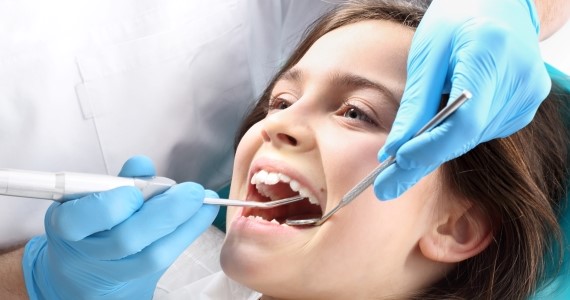How are Teeth Sealed?
Protect your child's teeth from tooth decay with sealants.

Groovy Teeth
The teeth in the back of the mouth are responsible for chewing and grinding food. In general, the first and second molars should erupt fully by age 13. The last set of molars are known as wisdom teeth and typically come in between ages 17 and 21. Wisdom teeth often get extracted because of infection, abnormal positioning or because they may be impacted under the gum. Aside from their function in breaking down food, molars play a vital role in speech.
The chewing surfaces of permanent molars have pits and grooves, which are harder to clean and reach with a toothbrush. This creates the perfect environment for plaque buildup and for decay to develop. To keep permanent molars healthy and functioning long term, dentists typically recommend preventive dental sealants.
Who Should Get Sealants?
Sealants are a thin coat of glossy resin material painted on a tooth (permanent molar) to cover and protect the deep grooves and pits from collecting food particles like sugars and bacteria (plaque). This prevents cavities.
Dentists generally recommend sealants for children soon after their permanent molars erupt. This is because the pits and grooves are more susceptible to cavities for a variety of reasons. These reasons may include children's developing oral hygiene habits, which may not yet be ideal, and their diets, which can sometimes be problematic. The procedure may be completed in a mobile dental unit at school, in a clinic or at your regular dental office.
Sealant Process
The process of placing a sealant is quick, easy, and painless with no numbing injection involved.
- Cotton rolls are placed around the tooth
-
The tooth is rinsed and cleaned with a gel
- The gel is rinsed with water and the tooth is dried with air
- Sealant material is placed on the tooth
- A special light is shined on the tooth to harden the sealant
That's it! The bite might feel different at first, but the sensation will go away shortly.
Sealants and Dental Benefits
Sealants are considered Class A Basic services. They are limited to unrestored permanent molars for Blue Cross Blue Shield FEP Dental members up to age 22. Review Preventive Services in the BCBS FEP Dental brochure for other limitations.
Note: The information in this document is not meant to replace the advice of your dentist or another licensed healthcare professional. Talk to your dentist for any specific dental advice.






